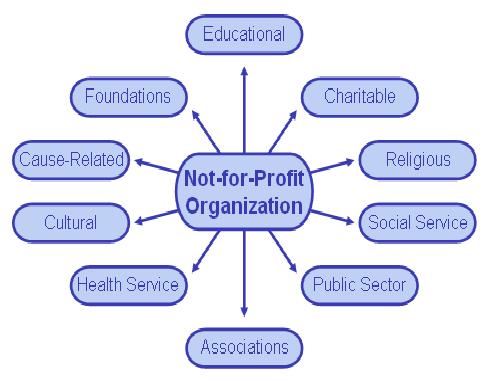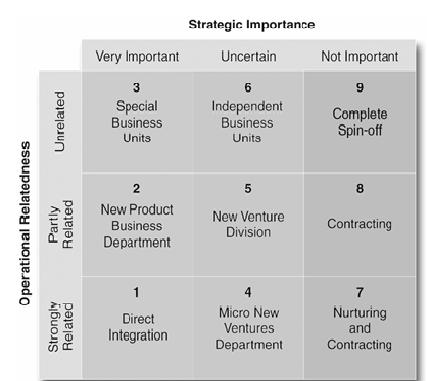Recommended reading: Strategic Control and Operational Control Effective strategic control systems tend to have certain qualities in common. These charactristics/qualities can be stated thus: Suitable: The control system must be suitable to the needs of an organisation. It must conform to the nature and needs of the job and the area to be controlled. For example, the control system used in production department will be different from that used in sales department. Simple: The control system should be easy to understand and operate. A complicated control system will cause unnecessary mistakes, confusion and frustration among employees. When the control system is understood properly, employees can interpret the same in a right way and ensure itsContinue reading
Strategic Management
Strategic management is the art and science of formulating, implementing and evaluating cross-functional decisions that will enable an organization to achieve its objectives. It involves the systematic identification of specifying the firm’s objectives, nurturing policies and strategies to achieve these objectives, and acquiring and making available these resources to implement the policies and strategies to achieve the firm’s objectives. Strategic management, therefore, integrates the activities of the various functional sectors of a business, such as marketing, sales, production etc. , to achieve organizational goals. It is generally the highest level of managerial activity, usually initiate by the board of directors and executed by the firm’s Chief Executive Officer (CEO) and executive team.
Strategic Issues in Managing Technology
Due to increased competition and accelerated product development cycles, innovation and the management of technology is becoming crucial to corporate success. The importance of technology and innovation must be emphasized by people at the very top and reinforced by people throughout the corporation. Management has an obligation to not only encourage new product development, but also to develop a system to ensure that technology is being used most effectively with the consumer in mind. External Scanning: Corporations need to continually scan their external societal and task environments for new developments in technology that may have some application to their current or potential products, Stakeholders, especially customers, can be important participant in the new product development process. Technological Developments: Focusing one’sContinue reading
Strategic issues in Not-for-Profit (NFP) organizations
Not-for-Profit (NFP): An organization that provides some service or good with no intention of earning a profit. NFP includes Private nonprofit corporations (such as hospitals, institutes, private colleges, and organized charities) as well as Public governmental units/agencies (such as welfare departments, prisons, and state universities) Types of Not-for-Profit Organizations Importance of Revenue Source: NFPs are dependant on dues, assessments, or donations for their revenue sources. In NFP organizations there is likely to be a very different sort of relationship between the organizations providing and the person receiving the service. Because the recipient of the service typically does not pay the entire cost of the service, outside sponsors are required. The pattern of Influence on Strategic Decision Making: Pattern of influenceContinue reading
Corporate Entrepreneurship
Corporate entrepreneurship (also called intrapreneurship) is defined by Guth and Ginsburg as “the birth of new business within existing organizations, that is, internal innovation or venturing; and the transformation of organizations through renewal of the key ideas on which they are built, that is, strategic renewal. A large corporation that wants to encourage innovation and creativity within its firm must choose a structure that will give the new business unit an appropriate amount of freedom while maintaining some degree of control at headquarters. Burgelman proposes that the use of particular organizational design should be determined by (1) the strategic importance of the new business to the corporation and (2) the relatedness of the unit’s operations to those of the corporation.Continue reading
Strategic Control Process
Strategic Control “ It is the process by which managers monitor the ongoing activities of an organization and its members to evaluate whether activities are being performed efficiently and effectively and to take corrective action to improve performance if they are not” -Sam Walton Managers exercise strategic control when they work with the part of the organisation they have influence over to ensure that it achieves the strategic aims that have been set for it. To do this effectively, the managers need some decision making freedom: either to decide what needs to be achieved or how best to go about achieving the strategic aims. Such decision making freedom is one of the characteristics that differentiate strategic control from other formsContinue reading
Strategic Control and Operational Control
Strategic Control Strategic control focuses on the dual questions of whether: (1) the strategy is being implemented as planned; and (2) the results produced by the strategy are those intended.” Strategic control is “the critical evaluation of plans, activities, and results, thereby providing information for the future action”. There are four types of strategic control: premise control, implementation control, strategic surveillance, and special alert control Premise Control: Planning premises/assumptions are established early on in the strategic planning process and act as a basis for formulating strategies. Premise control has been designed to check systematically and continuously whether or not the premises set during the planning and implementation processes are still valid. It involves the checking of environmental conditions. Premises areContinue reading

